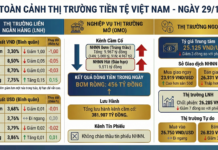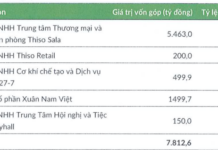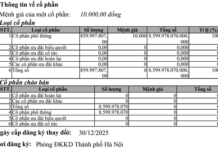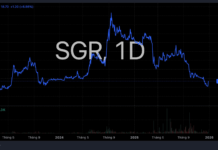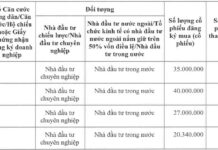According to Professor Ha Thi Thanh Binh, Head of the Commercial Law Department at Ho Chi Minh City University of Law, the Land Law of 2024, the Real Estate Business Law of 2023, and the Housing Law of 2023 are three important laws that directly impact the real estate market and individuals’, organizations’, and enterprises’ access to real estate.

Delegates sharing their opinions at the workshop.
The Real Estate Business Law of 2023 and the Housing Law of 2023 feature many progressive new points, ensuring transparency in the real estate market and housing policies. In-depth studies of these two laws and predicting and assessing their impact on the real estate market are essential.
At the workshop, legal experts, researchers, and law lecturers discussed the responsibility of real estate project investors to disclose information under the Real Estate Business Law of 2023. According to MSc. Hoang Thi Bien Thuy, a lecturer at Ho Chi Minh City University of Law and her co-authors, the responsibility of investors to disclose information is a critical activity that strongly impacts the stable and sustainable development of the real estate market.
Therefore, the authors believe that with the enactment of the Real Estate Business Law of 2023 and the Housing Law of 2023, legal provisions regarding the responsibility of investors to disclose information have undergone certain changes and improvements.
The new law not only provides more comprehensive and detailed recognition than previous documents but also introduces innovative approaches, contributing to the enhanced applicability of legal provisions. Specifically, the law recognizes three main issues: information content, timing, and update responsibility, criteria, forms, and means of disclosure.
Based on this observation, the authors propose several recommendations to refine the specific regulations regarding the timing of investors’ information disclosure and updates, enhancing the effectiveness and transparency of the information disclosed by investors. This will help minimize the negative impacts of this activity on the real estate market.

Scene from the workshop, “The Real Estate Business Law of 2023, the Housing Law of 2023, and Their Impacts on the Real Estate Market.”
Discussing the “Conditions for doing business in housing and future-built constructions under the Real Estate Business Law of 2023 and the Housing Law of 2023,” Prof. Luu Quoc Thai, a commercial law expert, assessed that doing business in housing and future-built constructions has proven its advantages in practice, which is why many developed countries worldwide allow this form of business.
To limit the negative aspects and ensure the safety of customers, this expert shared that the Real Estate Business Law of 2023 and the Housing Law of 2023 have introduced several new provisions to control the buying and selling and lease-purchase of future-built houses, such as deposit, guarantee, and payment issues, or requiring investors to release mortgages (if any project or future-built house is mortgaged) before conducting business transactions with customers or before mobilizing capital…
The opinions at the workshop also pointed out some new provisions of the Law that raise concerns about ensuring the safety of customers, such as guaranteeing the financial obligations of investors to customers, the provisions on guarantees, and requiring investors to release the mortgage on the part of the project or future-built house that has been mortgaged before doing business…
To develop a good policy on this issue, many participants suggested that the domestic law-making agencies continue to refer to the experiences of countries worldwide in issuing legal provisions on the real estate business in the future.
The New Regulations on Housing Ownership for Overseas Vietnamese Nationals
“Vietnamese citizens who are permanent residents abroad and are permitted to enter Vietnam will be eligible to own property in the country. These citizens, provided they retain their Vietnamese citizenship, will be entitled to the same rights as any domestic individual, including the right to purchase and own real estate.”







